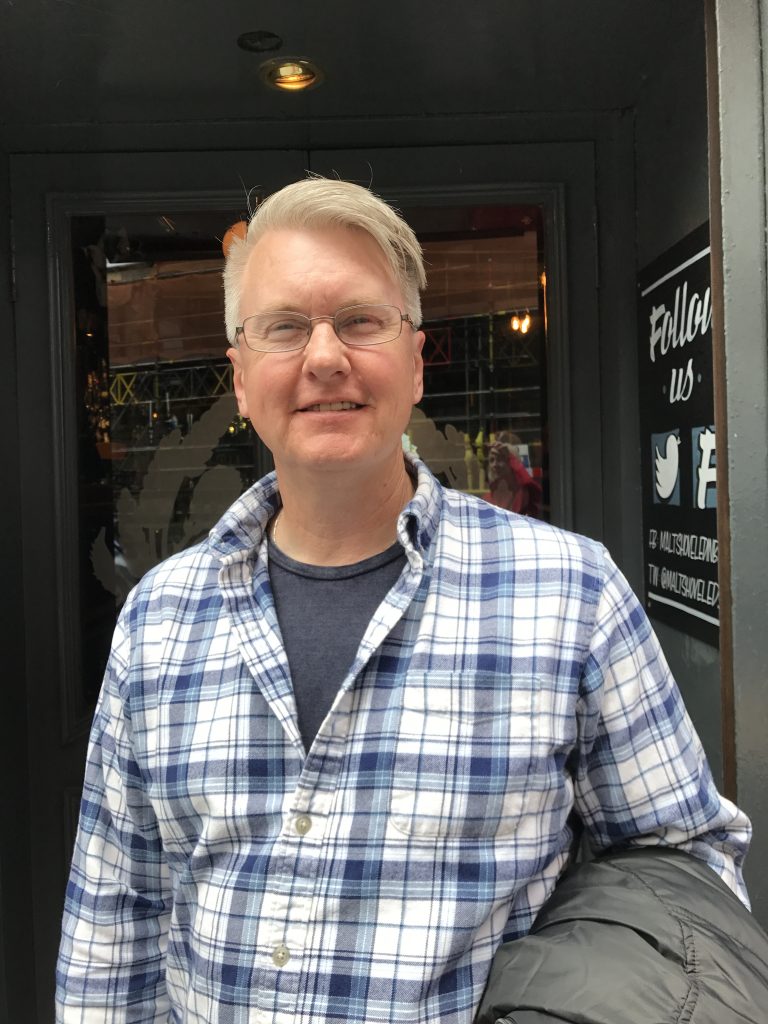The orange ones taste like caramel—shouted Pelokie. Everyone else groaned. Once again—exhorted Celosp—they taste the same, all of them, all colors, since they are always changing colors. Pelokie sloughed off to the subterna with a “Pfft.” The others continued gobbling down the miniature creatures running rampant. They found themselves choosing ones with any orange at all, just to make sure. After awhile, they looked at one another and shrugged en masse, returning to snacking on all colors. The creatures constantly went in and out of structures they’d built. Pelokie’s departure had the structures shaking and the creatures stumbling about haphazardly, so that everyone could simply lay out tongues and let the snacks fall on them. They sucked the creatures down swiftly. Muldosina blurped out a molten stream of montacid. Pardon me—she said, settling back into position, dribbles down all sides. Creatures increased their volume until the dribbles hit them. Then they stopped, which made them no longer fun to eat.
Flash Fiction Friday: Boys Will Be Boys
Dry ice swirled around Reverend Terrance as he gave an old fashioned, heart pounding sermon under multi-colored lights crisscrossing the stage. The squat, cinder block building belied its revival tent facade with its chilling a/c. The Reverend must expend an outrageous amount of heated energy in such a performance. My childhood friend felt far removed from our childhood in this atmosphere. However, I was not surprised. He’d always been dramatic and insistent on being right. What better way to be the center of attention and lord it over people than religion.
He beckoned to me from the stage at the end of the show, and so I met him backstage, where he was removing makeup while chatting with his crew. Shelley—he boomed at me as I approached. A shiver ran up my spine ending with a slight spasm as it hit my neck, the reverberation chilling me. I smiled and nodded. Reverend Terrance … Terry waved his hand at me as though announcing me to an audience anticipating me. Then he informed the paid sycophants—Shelley’s after my little brother; again. Any response would go badly for me, so I stood silent until he finished with me, giving me leave to walk away, wondering why I’d come, wishing that I’d ignored his little brother Dennis’ admonition that I had to see him in action. I had seen Dennis on this visit home, as I’d seen other childhood friends. It was an innocuous meeting, lunch at Darby’s on the river, reminiscing, as we’d not seen each other in a decade.
It was a challenge to continually force the man from my mind as I went about my remaining days in my hometown, vowing to avoid him and his brother. The icky feeling lingered no matter what, and I wasn’t sure which brother was attached to it. The process resulted in a headache, sending me to the local drugstore, McCarty’s. I hadn’t gone in this visit since the soda fountain was gone. As I perused the headache relief meds, a booming voice resonated throughout the store. Unfortunately, the good reverend was between the door and me. Feeling trapped, I grabbed something off the shelf and crept toward the back of the store intending to circumvent the man by passing through the feminine hygiene product aisle. He turned into the other end of the aisle, spotting me immediately. Shelley—he cried in mock surprise. Enough—I thought and dragged my wilting courage back up to reasonable height. Holding it firmly, I announced with no greeting—You should not have insinuated that your brother and I are an item, because we aren’t now and have never been. Under the surprise, a flicker of anger alarmed me, but I felt comforted by the presence of other shoppers. He apologized loudly enough to draw attention from them and then bowed, saying—And now I shall take my leave of you. He walked around me, head held high, chest out, toward the back of the store. I scurried to the front, feeling violated. While standing in line, Dennis came up to me in his pharmacist’s tech uniform and asked me out on a date. I shook my head. Terry never changed.
Mary Wallace—Author of The Praetorian Saga
Mary is the author of The Praetorian Saga, a highly rated romantic sci-fi series. She’s a sucker for romance in stories and believes that any good story needs some love thrown in. Prior to her writing career, she had lots of jobs she wasn’t cut out for, the most infamous of which was airport security. When asked why she didn’t enjoy that job, she’ll tell you, “Those guys have no sense of humor.” Mary lives on the Alabama Gulf Coast with her husband and sons, two fat lapdogs, and a cat she’s convinced is part velociraptor.
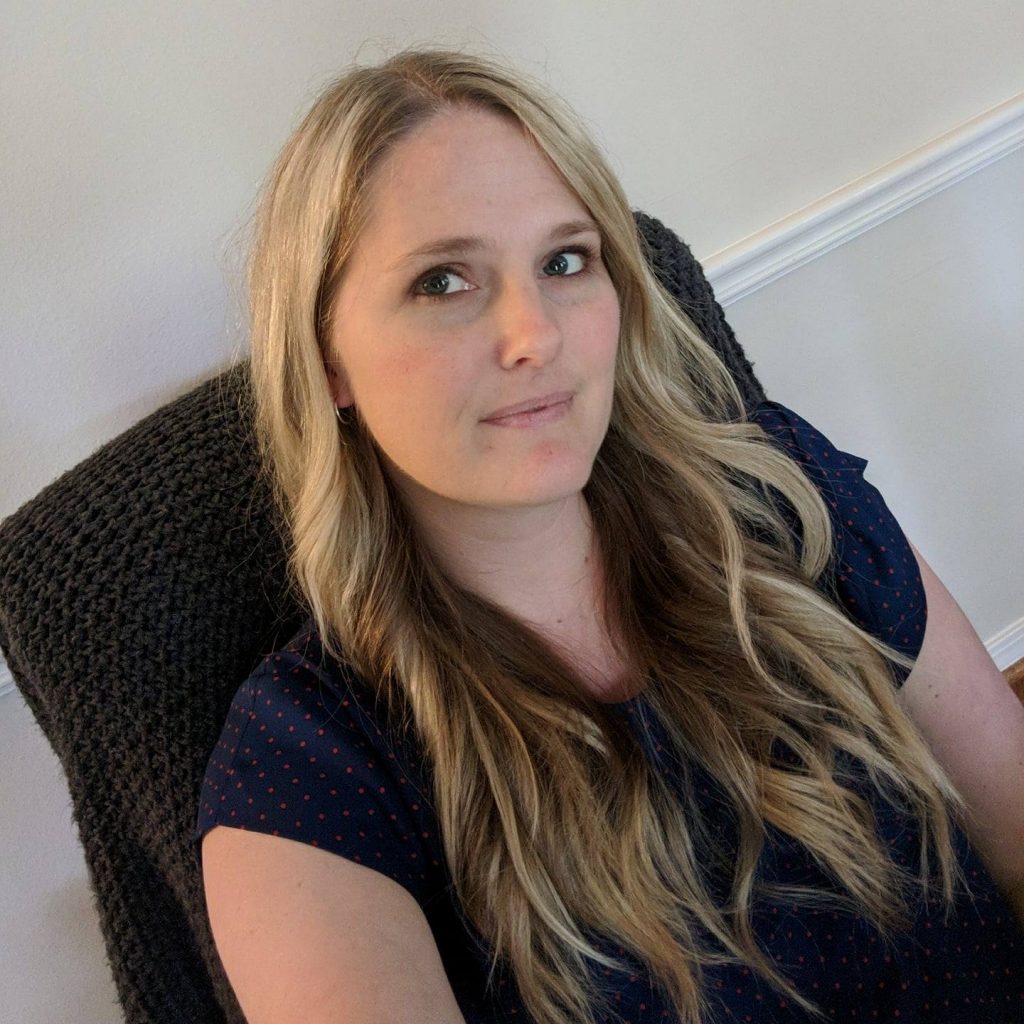
Tell me about your writing process: schedule, environment, inspirations, maintaining character integrity through a series, etc.
I work a full-time day job, so writing is a second career for me right now. I also have two kids still at home, a few pets, and a husband. So, I keep pretty busy. I’m somewhat terrible with schedules, but over the last year or so I’ve managed to come up with something that works for me. I generally wake up at 5am, regardless of what time I have to be at the day job. I get myself dressed and ready for work and write until it’s time to leave for work. I try to write again in the evenings after the house quiets down for the night, usually from about 9pm-11pm. The weekends are for family time.
I have a home office that’s full of my books, tarot cards, Funko pop figures, and a photo board of friends and family. I have a massive desk that’s forever cluttered with anything and everything. I like to listen to music while I write, but I keep the volume low so I won’t get too distracted and start singing along.
I believe inspiration is everywhere, if you look for it. Music is one of my biggest inspirations. Sometimes I can imagine a scene or short story out of a song lyric and sometimes that can become a whole book. Sometimes I can plot out a whole book series from a random side character in a TV series. It’s about allowing your mind to get a little carried away, I think. Basically, the things I used to get in trouble for in elementary school.
I’m kind of a sucker for a story that rips your heart out, at least a little. I prefer happy endings, but I need my characters to struggle a little along the way. I try to write stories I’d want to read, so that’s definitely reflected in the things I write. When it comes to a series, you kind of go into it knowing that your characters are going to change along the way. Or, they should, if you’re doing it right. Not who they are at their core, but as they learn and grow throughout their journey, they adapt and change somewhat. I keep a file on every character I write and add to them along the way. I always want to make sure that whatever I put my characters through, their reactions and interactions make sense to who they are. I also lean toward character-driven plots, so it’s really important to keep who these people are firmly in my mind as I go.

Walk me through your publishing process from “final” draft to final product, including who does what when, and marketing that you do as the author. Do you market the series as a whole with each new book? Will there be more in the series, or do you start a new one?
So, this is my least favorite part of being an indie author. The part that comes after the writing part is over. I’ll reiterate what I’ve said before, which is that when I started this whole thing, I had no idea what went into writing and publishing a book. I’m still learning and trying to improve as I go. Every day I’m finding things I’m doing wrong or not doing enough. I jumped into this thing head first and I’m slowly figuring out how to swim. That said, I’ll share what I do.
I try to start promoting the book a couple months before release date. I share the blurb, cover, excerpts, etc on my social media sites. I try to mix it up from Twitter to Facebook to Instagram. Not every social media site has the same type of reader and it’s important to understand that when you’re making posts.
I market the series as a whole as well as individual books within the series. Obviously, I want to bring in new readers, but I also want my established readers to keep coming back. I’m constantly learning which ads work on which platforms and which don’t. This seems to change frequently and I’m always playing catch-up.
I have a cover artist who designs all my covers based on a bit of input from me. Once the book is formatted and I know a page count, I have the cover commissioned and I do a cover reveal in my newsletter, including a link to the pre-order. I always do pre-orders for a new book. I try to have those go live around two months before the release date.
As for more Praetorian books, I never say never. For now, Bree and Declan’s story is finished. I feel like I gave them their due and wrapped their story up nicely. I’ve thought about coming back to the Praetorian world sometime down the road, but I’d have to have the right story to tell. Right now, I’m in the beginning stages of a whole new story set in a dystopian America. I’m pretty excited about it. I don’t know yet how many books it will be.

Talk about your support system online and IRL, especially your biggest cheerleaders.
I consider myself really lucky when it comes to support. Writing is kind of a solo job and it can be isolating if you let it. You spend hours on end alone with nothing but the stories in your head to keep you company. It helps to have others in your life who understand that and who have your back, so to speak. I have several friends who are also writers. They’re always down for a plotting session or to help me bounce ideas around, even if I’ve never met some of them in real life. They’re always there to encourage me when they get a text at midnight or 6am saying, “This is all shit and I’ll never finish this book. Shoot me now.” They’re the ones who keep me pointed in the right direction.
My husband has probably been my biggest source of support. After more than 20 years together, he gets me better than anyone and he knows how important writing is to me. He’s always understanding when I tell him I need to write at night instead of watching a movie or catching up on our Netflix list. He never judges me when I take my laptop on trips to run errands so I can peck away while he drives. He’s a quiet guy, so he’s never going to be the one shouting things from the rooftops, but he always shares anything he sees about one of my books on social media. It’s his quiet way of showing his support, but it never fails to make me smile.

How does life influence your writing and vice versa?
The thing about creating things is that if you care at all about it, you’re going to put part of yourself into it. It’s hard for me to stand back and point out specific elements without delving too deeply into my own history and life. I write characters who have experienced real tragedy and loss and come out the other side. That’s probably because it’s something I’m familiar with. I don’t think I know how to write a character who’s never had anything bad happen to them. Could be a fun challenge, I suppose.
Since I started writing, I think I’ve become more open and honest with myself and the people around me. I’ve told this story before, but I kept the fact that I was writing a book a complete secret until a couple of months before the first book was set to release. When someone asked me about the book directly, I was terrified. I stumbled over my words, turned bright red and wanted to run from the room. Now, nearly two years since the first book’s release, that’s gone away and I’ve gotten to a place where I’m comfortable talking about my writing. With that comfort, I think I’ve become at peace in my own skin when I didn’t realize I wasn’t before. It’s going to sound cheesy, but I feel like I’ve found what I was supposed to be doing all along. I’m proud of myself and happy with what I’ve done so far, though I know I have a long way to go.

What do you love most about your creativity? What prompted you to write a series?
I think the thing I love most about having a creative mind is that it’s never boring. I don’t remember ever being bored as a child. Part of that was because I loved books from a young age and spent most of my time reading them. Because of that love for stories, I wanted to create stories of my own. I’ve always been a daydreamer. As a kid, it got me into trouble because I’d get lost in my head instead of paying attention to whatever it was I was supposed to be doing. As an adult, that still happens sometimes, but I’ve gotten better at muti-tasking. Or maybe I’ve gotten better at pretending I know what’s going on while I’m lost in my own head. I’m not sure.
When I first began writing The Praetorian Saga, I had no idea if I had enough story for a book, let alone a series. I had a vague idea of a scene with a girl running down a dark street. That’s it. Somehow I got four books out of it. That makes it sound much easier than it actually was, I know. I think somewhere along the way, I realized that I had more story than one book would allow. Originally, I’d planned for a three-book series. I thought I could tell the story I needed to tell within that structure, but after I’d finished the first draft of the second book, I realized that there was a lot missing. There was a lot of character development, but not as much propelling the story along (character-driven writer, remember?) So, I cut out the back half of that book, made a lot of revisions, and wrote a whole new ending that drew back into the larger series plot. What that meant was that I’d basically added another book to the series. So, it came out to four. That suited me fine, because as a reader I prefer longer series to standalone books. It didn’t make things any easier when I was fighting my way through the fourth book, cursing my past self who thought it was a good idea to add another book to the series.
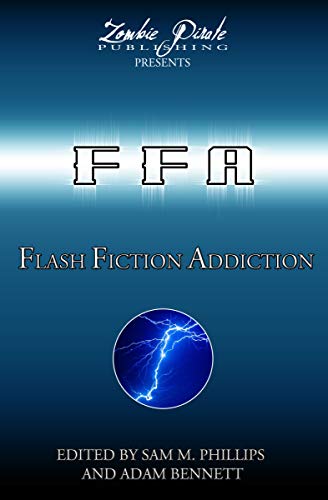
Connect with Mary:
PA O’Neil—Storyteller and Short Story Author
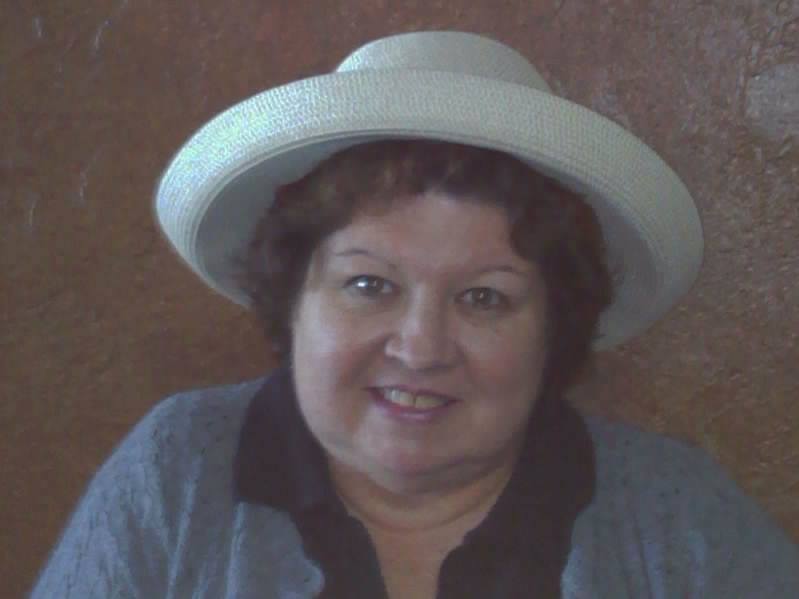
Originally from Southern California, P.A. O’Neil, spent her teen years in a small town in Washington State. Her Mexican and Irish heritage has provided a lifetime of inspiration, as well as compassion for others, which comes through in her stories. She understands what it means to be in the minority as well as the majority and has always given voice to the underdog. She lives in Olympia, Washington, with her husband and two grown children nearby. Her life is full of love from family and friends from around the world, and this love is reflected in her writing.
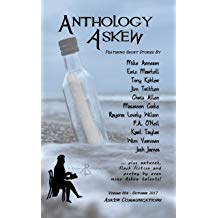
Tell me about your writing process: schedule, environment, inspirations, decision to focus on short stories, etc.
I’m a genuine sloth in the morning, so my writing is best done between 11:00 am and 5:00 pm. I do have a part-time job outside the home with a varied schedule, so I don’t often have the availability to write every day. I like to think of my writing as an actual profession, which means you must take days off in order to stay fresh. I don’t write on the weekends in deference to my husband, who prefers my attention be away from the computer.
I’ve always been a storyteller, writing off and on since I was a child. In college, I wrote and produced a radio play. I thoroughly enjoyed that, which makes me think I might’ve been born about forty years too late. The greatest inspiration comes from vivid dreams; I’ll keep notes and do my best to fit the premise into a workable plot. I did this in August of 2016 when I found myself unemployed for the second time in two years. I thought I could either sit on the couch and watch old movies, or I could sit at the computer and write out a story, which turned out to be a novel called, “Finding Jane.”
The story did not turn out half-bad and was praised by those who read it, but of course, it was extremely raw, being compared to “a beautiful runway model with nothing to wear.” Thanks to Facebook, I connected with people who were in groups I belonged to; they were published authors, and I asked where I should go from there. They put me onto Facebook pages that were writing oriented, and with the help of a friend who has since also become my editor, fourteen months after I typed END on my novel, my first short story was published in an anthology. It was called, “Sara Hemming, Psychic Redecorator.” Since then, my short stories have been accepted for publication in over thirty publications, both online and in paperback.
I enjoyed writing my novel but have since found a preference in writing short stories, flash fiction, and even drabbles. The challenge of making every word count and having a purpose is fulfilling to both the writer and the reader. I want to take readers, drop them into a scene that’s already in motion, make them care about the characters, given them a plausible conclusion, yet leave them turning the page at the end wanting to know more. That’s what I believe makes for a good short story.
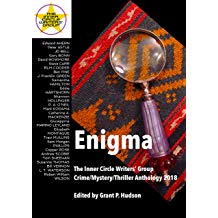
Walk me through your publishing process from submission to marketing.
The process for submission was something I had to learn for myself. I watched other Facebook group members comment about how they did it, what worked, and what didn’t, and put together a submission letter that I thought would meet the criteria for a standard submission. Some worked, and some didn’t, but what did work gave me the idea to create a template that I use for each submission. It is always being refined but helps to keep the project running smoothly. I even wrote an essay that was printed on the Writers Unite! Worldwide webpage, “The Submission Process for a Short Story or What I Wish Someone Had Taught Me.” I have shared it often on my own Facebook professional page so others can find relief when wondering how to go about making a submission. To have your work bounced by the submission editor because of a technicality in your letter, before the story has ever been read, is an avoidable shame.
I have used Submittable, Duotrope, and Submission Finder, along with word- of-mouth to find submission calls. As a way of keeping track of submissions for individual stories, I made another template which lists the basic information [story name, word count, date written, editor] as well as information about the publication [name, publisher, editor, closing date, payment, reprints, etc.]. This way when I submit it, I have the date of contact (to and from) and even publication date if accepted. It suits me as far as efficiency because it tells the history of each story towards publication.
So far, my advertising has all been through Facebook pages. I do have an Amazon author page that I refer to, but I have yet to pay for an advertisement. That may change if I get more involved in the publication process of some of these anthologies or my own collection.
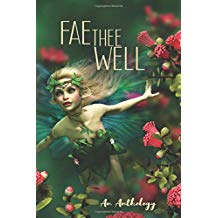
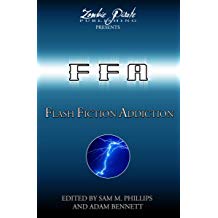
Talk about your support system online and IRL, especially your biggest cheerleaders.
I have absolutely the best of friends in the virtual world thanks to the Facebook groups I have joined in the past three years. They’re from all over the world and are always willing to help, encourage, and even give solace when needed. My sister though has been my strongest supporter since day one. Yes, she laughed when I told her I had written a novel and wanted to write professionally—I would’ve laughed too, but she has become my sounding board and official record keeper as she has all of my original manuscripts in hard copy. My kids have been supportive in a, “yeah, yeah, whatever you say, Mom,” kind of way. My son though gave me a book for Christmas about how make money as a self-publisher, so I guess he’s coming around. My husband acts as if he has no interest, but I have learned from his co-workers, he does speak proudly of my accomplishments.
I do have to thank Facebook, because it has allowed for me to connect with friends and relatives who are always there to cheer when the next story get published. I have the best coworkers, who are proud of my accomplishments, and some of them are writers themselves, so we always give encouragement.
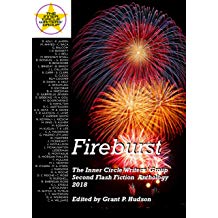
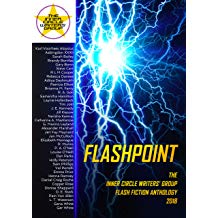


How does life influence your writing and vice versa?
In as much as life influences my dreams, actions and events oftentimes spark my imagination enough to write a story about it. My story, “The Obelisk,” is one of these, whereas “Pink and Gray Ash” came from a true story as told by a friend of a friend of the man who died.
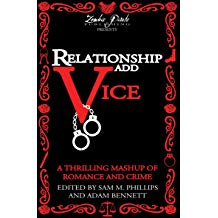
What do you love most about your creativity?
I joke about needing to write to “silence the voices in my head,” but really, it’s being able to arrange my thoughts in way that can entertain, or possibly even enlighten, the reader enough. I want them to be glad they took the time to read my story.



Connect with O’Neil:
Amazon author page: https://www.amazon.com/-/e/B07BF2D8SP
Flash Fiction Friday: Something Much More Frightening
I’m not different, and I’m not special—she ranted to the air in the attic. Dust fell through her as bats fled the rafters at her outburst. The two teenagers snooping through the abandoned house merely shivered slightly and zipped their jackets higher. The taller girl fingered the photographs of her on the table under the window. They must have loved her very much to keep her at home and take care of her—she said softly. The other teen nodded, looking around her at the pictures. Only moonlight illuminated the attic, which covered the entire top floor, a hospital bed on one side. Bars running the width and height of the room divided it in half, essentially imprisoning whoever had utilized the bed. The smaller teen had placed a small chest in front of the gate to block it open, though her friend had admonished her that they were alone before bringing out the book Different and Special to compare the black and white photographs with the bedroom that had remained untouched for centuries. They stepped back from the altar-esque table and positioned the book for optimal moonlight. See, that would have been her view when she was confined—said the girl whose book it was, as she pointed toward the window behind them. They both turned, and immediately dismissed the shadow crossing the light, looking at each other and away. The tall teen pointed out each item depicted in the book, both girls looking for a moment and immediately back to the book. Was she possessed like they say—asked the smaller girl. Her friend shook her head and replied—I think she was mentally ill, but no one understood that then. I was not mentally ill, and I was not possessed—screamed the spirit. She kicked the chest and slammed the gate. Both teens jumped, and the book fell to the floor. Then they ran out the gate and into the night. She whispered—I was something much more frightening, a woman.
Dete Meserve—Best-selling, Award-winning Novelist and Film/TV Producer
Dete Meserve is an accomplished creator and producer of independent movies and award-winning television shows as well as a best-selling and award-winning novelist. As a key member of the executive team at Wind Dancer Films, Meserve has been one of the industry’s major players in independent film and television production. She currently oversees worldwide business and creative properties for the film development, finance, and production company that has generated over $4 billion in revenue from its properties, which include hit television series Roseanne and Home Improvement and feature films including What Women Want (Mel Gibson), Where The Heart Is (Natalie Portman), Bernie (Jack Black), What Men Want (Taraji P. Henson) and Good Sam (Netflix).
Meserve is also leading the company’s growing kids and family brands, including the PBS KIDS series Ready Jet Go!, created by Craig Bartlett (Hey Arnold!, Dinosaur Train) with Meserve as Executive Producer, the stop motion series “Storywoods” with Lil Buddy Studios and Head Writer Carin Greenberg, and Not A Box, the animated TV series based on the award-winning book by Antoinette Portis.
Meserve has produced numerous films and TV series and her list of credits span award-winning television series such as Home Improvement and Saint George with George Lopez (Executive Producer) as well as hit movies What Men Want, the award-winning comedy Bernie (Executive Producer), The Keeping Room (Executive Producer), What Women Want (Executive Producer) and Good Sam (Producer).
Meserve is also the author of the best-selling and multi-award-winning novel, Good Sam, as well as its sequel Perfectly Good Crime, which won the Living Now Book Awards for “books that change the world,” and the international bestseller The Space Between (July 2018). Meserve adapted her first novel, Good Sam, into a screenplay and produced it as a Netflix Original Film starring Tiya Sircar (The Good Place). The film was released worldwide in May 2019. Her book, Random Acts of Kindness, co-written with award-winning journalist Rachel Greco, was published in March 2019. Meserve is at work on a fifth book entitled The Good Stranger for Amazon Publishing/Lake Union (Spring 2020).
She lives in Los Angeles with her husband and three children.
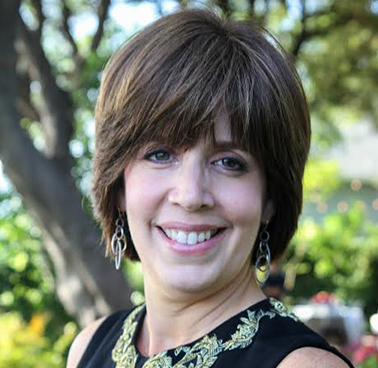
Tell me about your writing process: schedule, environment, inspirations, etc.; and how you balance your careers of producer and author.
I write whenever I can! My job as a producer and CEO of a studio takes up much of my daylight hours, so I have to find writing time at night after my family’s asleep or on weekends when my family is busy with other things. When I’m on deadline to deliver a manuscript, I have to set aside specific time to write—often in the daylight hours—but other things in life invariably interfere and suddenly my three-hour block of writing time gets reduced to, say, ninety minutes. It can be frustrating, but I keep juggling and shifting to make it happen. I know my priorities and family always comes first.
Hod did you “found” your Random Acts of Kindness stories, and what is it like to co-author?
After posting literally thousands of stories about the good things people do for others, I wanted to write a book to capture some of the best stories and looking through a very specific lens: how were the givers changed by helping others? Since these were true stories, I wanted to collaborate with a journalist who had the right sensitivity and sensibility for these “softer” stories. I read an article about a woman who was given a new van by a stranger and loved the poignant way journalist Rachel Greco approached the story, so I called her and told her I wanted to write a book of these stories. I was overjoyed when she said yes. Initially we didn’t meet in person because I’m based in Hollywood and she’s in East Lansing, Michigan. Instead, we’d regularly get together for calls to talk through what stories we’d seen that had resonated with us and which ones might be good candidates for the book. We had tremendous resources to draw from: thousands of stories on my Facebook page at www.Facebook.com/GoodSamBook and countless others that readers were sending in. We wanted to make sure the book reflected all kinds of givers: rich, poor, age nine-year-old to ninety-nine, city folk and people who lived in rural communities, bikers and fraternity boys. Our idea was not to reprint what others had already written. Instead, Rachel spoke with the people in the stories and we developed a chapter from there. I have to say those hours working with Rachel were some of the brightest for me because I knew we were both doing something we were meant to do.
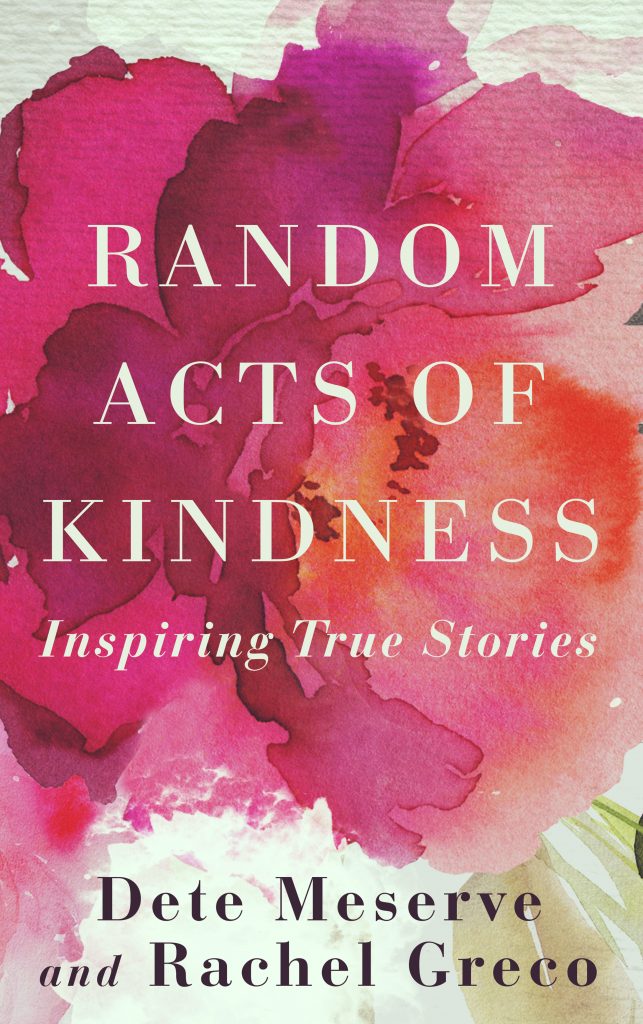
Walk me through your publishing process from “final” draft to final product, including who does what when, and marketing that you do as the author. As you wrote Good Sam, did you imagine the story as a film? Are you planning to take your other novels to the big screen?
When I wrote Good Sam I never imagined it would become a film. I only set out to tell a story where we’re searching for someone doing extraordinary good and exploring how looking for that kind of person actually changes all of us. I wanted to explore the reasons why people do good things. From the countless stories told about murders and violence, we already know why people commit crimes but how often do we stop to think about why we help others and why some put their lives on the line so that others can live? Maybe thinking about that will allow us to become our better selves. There are moments when I still can’t believe it’s a Netflix Original Film, even though I wrote the screenplay and was a producer on the film. It still feels joyously unreal.
When I begin writing, I like to have lots of time for what I call “play.” This is when I’m writing ideas into a notebook, doing research, playing around with an idea, discovering the characters. It’s truly the most carefree and easy part of writing. Then there becomes a point where the story starts to form: I hear snippets of character dialogue, I can see scenes of what’s happening, and I’m beginning to have an inkling of what themes I want to explore. That’s when I start a draft which I title: Things I’m Seeing. If ideas start flowing, then I know I’m ready to write the manuscript. Otherwise, I stop and go back to “playing” and researching until I’m ready to begin.
Once the manuscript is finished, I like to send to beta readers before sending to the publisher but the deadlines on the last novel were so tight that no one but me had read it before I sent it in. That was a nail biter of a process for me. After that, the editor will send me notes and I’ll make revisions addressing notes until we all get a draft we’re all happy with. Then off to copy editing and proof reading all while writing ideas for marketing, working on the cover with designers, thinking about book club questions, writing acknowledgments, etc. It’s a huge wonderful process to bring a book to life and I’m always grateful for the privilege of doing it and for the talented and committed people around me who make it possible.
I’m adapting some of my other novels to the screen. I’m particularly intrigued by SVOD platforms like Netflix because they allow you as a creator to reach massive audiences around the world, which is very rewarding. But, for me, all ideas begin with story. It’s only after you know the story that you can ask: Where is the best place—what is the best way—to tell that story? A novel? A TV series? A movie? I’m open to wherever that leads me.
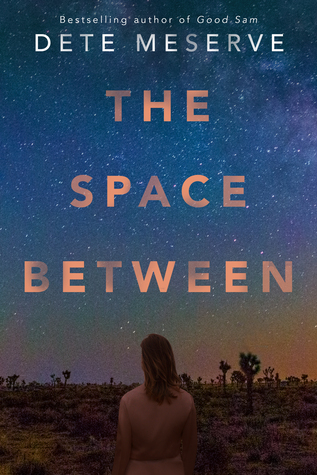
Talk about your support system online and IRL, especially your biggest cheerleaders.
My readers are the best! Truly. Every day I wake up to countless stories about good people that they’ve shared on my social media platforms or sent to me via messenger or email. They are wonderful supporters of my writing, sharing their recommendations through reviews and talking about the books online. When I have moments where a current novel I’m writing is difficult, I take a peek at what people are saying—their reviews, comments on posts, the emails and letters they send me—and I’m reminded how fortunate I am to have such loving, thoughtful, kind readers in my life. I feel like I know many of them even though we’ve never met in person. I never take that for granted and try to respond to every reader. That can be difficult to juggle when I’m already working long days, but it’s important to me to connect with readers.
In real life, my husband and family are the best support system. I often begin work early in the morning and my husband brings me a chai latte and a breakfast so I can keep working. My daughter Lauren patiently listens to me, read scenes aloud, and gives me feedback. And my older sons are incredibly understanding when I run off after dinner to get back to writing. And I’m fortunate to write in the beautiful Southern California light, which is partly why much of my writing is optimistic and hopeful.
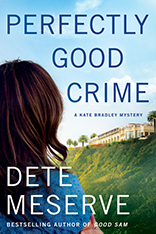
How does life influence your writing and vice versa, especially the response to Random Acts of Kindness and the Good Sam film? How has your background in film prepared you for a writing career?
Sometimes my workdays can get intense—disappointments, failures, surprises, gut-wrenching events that steal my breath away. I try to channel that into my writing. Even if what I’m writing about has nothing to do with what’s happening in real life, I find a way to convey the complex emotions that come with working with others all day long. People often ask me how I can write such optimistic stories when I work in the rough and tumble world of Hollywood. But the truth is, that’s why I started writing stories where Kate Bradley seeks out people doing good, without ulterior motive. I honestly questioned if such people existed, so I sent Kate Bradley on that exploration. And along the way, I discovered that good people are everywhere – you just have to look past those who are getting all the attention for bad stuff and you’ll see them everywhere. All the time.
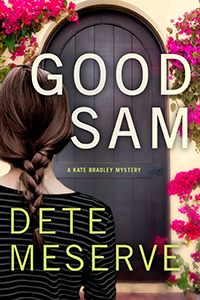
What do you love most about your creativity?
I love that creativity allows me to follow my passions and curiosity. I’m interested in so many things, so writing allows me to bring all those things together. I’m always researching and learning new things in order to accomplish a novel. I’ve learned a lot about journalism, firefighting, Russian linguistics, opera, online videogames, and security systems from writing the Kate Bradley mysteries. And when I wrote The Space Between, I immersed myself in astronomy, a little physics, and secret codes. I also learn a lot about people—the way we think, how we make decisions, the way we interact with others, how we acquire belief systems.
What I didn’t expect—and which is always a wonderful surprise for me—is that my explorations are embraced by so many and become meaningful to others too. That connection with readers—when they say they’ve experienced the same feelings as my characters have—is priceless. Writing is a way to share the human experience and makes me realize that I’m not alone in the things I love, wonder about, question or struggle with. That is a gift of a lifetime.
Connect with Dete:
Website: www.DeteMeserve.com
Goodreads: https://www.goodreads.com/book/show/35122165-good-sam
Bookbub: https://www.bookbub.com/authors/dete-meserve
Facebook: www.facebook.com/GoodSamBook
Twitter: @DeteMeserve
Instagram: @DeteMeserve
Amazon: https://www.amazon.com/Dete-Meserve/e/B00JH4RLQQ
Audible: https://www.audible.com/author/Dete-Meserve/B00JH4RLQQ
Audiobooks: https://www.audiobooks.com/browse/author/189881/dete-meserve
Wind Dancer Films: www.winddancer.com
Nine Cloud Dream by Kim Man-Jung
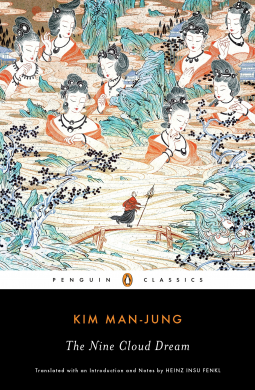
The “greatest classic Korean novel” by Kim Man-Jung follows a young boy’s rags to riches story that encompasses wives, concubines, wise men, scholars, and the military. One man lives an incredible lifein 17th century Korea, continously attracting the most beautiful women, many whose status makes them worthy only of positions as his concubines, and experiencing fantastical elements, such as fairies and dragons. It’s challenging to view this as a great romance from the modern perspective of the Me Too movement. Then at the end, it’s all a dream. Classics are not for everyone. I was graciously given a digital copy from the publisher through NetGalley.
And Then You Were Gone by RJ Jacobs
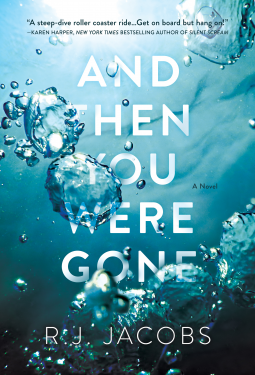
Paolo takes Emily, who has finally managed to get her bi-polar under control, out on his boat for a romantic date. After a wine-filled evening, Emily awakens to find herself alone on the boat. A roller coaster ride through the police investigation reveals a different Paolo, and Emily must work to prove herself innocent in this missing man mystery. Jacobs does a great job of eliciting sympathy for his unreliable narrator, and the twists and turns are credible and gasp-worthy. Fans of Catherine Steadman’s Something in the Water and / or Kelly Simmon’s Where She Went will appreciate Jacobs’ style of storytelling. I received a digital copy of this fantastic thriller from the publisher through NetGalley.
Life of a Writer: Glimpses of a Father
I lay across my bed reading a book laid on the floor next to the bed. Hearing a harrumphy throat clearing, I sat up and tilted my head questioningly at my father in the doorway. He walked in and sat next to me on the bed, clasping his hands together, staring at the floor. I copied his body language without thinking, dreading what my mother had sent him to tell me. Well—he began—I know you’re a teenager now. Yeah—I responded. Shifting, adjusting his pants, rubbing his beard, he tried again—I just want you to know what’s going on, you know, with boys and all. I crossed my arms and narrowed my eyes before assuring him—Daddy, it’s not like I’m dating anyone; the boys in this town don’t like me. He looked at me funny and said—I betcha some boy does like you, but he’s just shy, cuz you know, you’re a pretty girl. My laughter surprised him, and I shook my head as though he was clueless. Boys in my school saw me only as a target. Well, in any case—he told me as he again stared at the floor—one day you’ll like a boy, and then things will happen. What things, Daddy—I asked, appreciating the realization—things like threesomes and fetishes and maybe adult toys. Good lord—he hollered as he jumped halfway to the door and inquired loudly—where the hell did you learn that shit. I couldn’t help grinning as I answered—Daddy, we have cable; you don’t need to tell me about sex.
G. Allen Wilbanks – Horror/Fantasy/Sci-fi Author
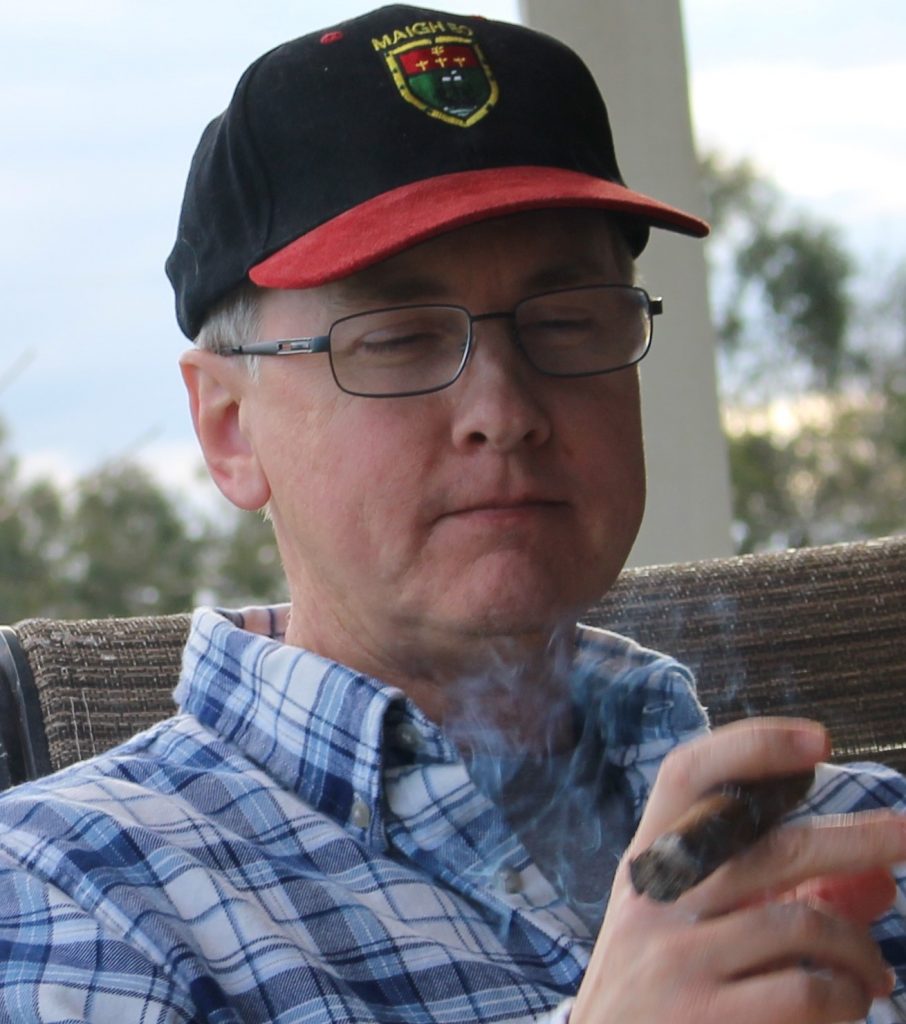
G. Allen Wilbanks is a retired police officer living in Northern California. For twenty-five years he wrote collision and crime reports during the day to pay the bills, and short fiction during his off-time to stay sane. In 2016, he retired from real life to devote his full attention to fantasy. He has published two short story collections, and the novel, When Darkness Comes. His short stories have appeared in Daily Science Fiction, Deep Magic, The Talisman and dozens of other magazines and anthologies all over the world.
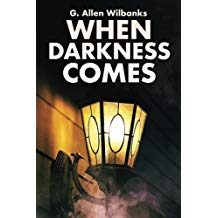
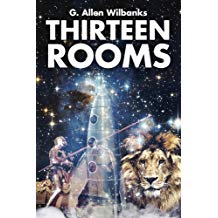
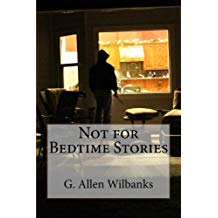
Tell me about your writing process: schedule, environment, inspirations, black magick spells, etc.
I live on five acres of property in a rural neighborhood, so I spend most of my day isolated from other people. I’m okay with that, though, because it gives me time to write with minimum distractions. I’m also a bit of a hermit if I’m being honest. I like the isolation. Most of my days look pretty similar. I wake up in the morning about 7 AM to say goodbye to my wife as she heads out the door to go to work. I start my morning with a four or five mile walk through the pastures and farmlands surrounding my home while I listen to audiobooks (since I rarely have to time to sit and read a book anymore). Back home, I work in my yard tending the garden and fruit trees for a couple hours (still listening to a book), and then about 11 o’clock I settle into my den to write. My wife gets home about 6 PM each day and usually finds me at my desk still working on whatever WIP I’ve chosen for that day.

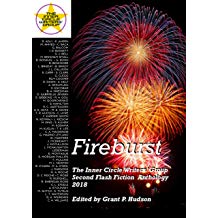
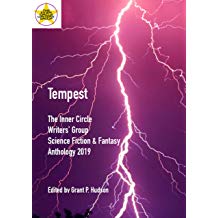
Walk me through your publishing process, from “final” draft to final product, and marketing strategies.
I have published three books: two collections of short stories and one novel. I published each of them through CreateSpace (which has since been bought out by KDP Select). The software was very user-friendly and made the process as simple as possible for a newbie like myself. There is software for making your own cover and creating your own layout for the cover of the book, but I would actually recommend reaching out to a professional cover artist or designer. It makes a world of difference and your book will look much more appealing to a potential reading audience.
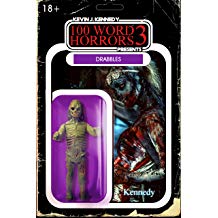
Marketing is the hard part. I am a bit of an introvert and am much more comfortable writing stories than trying to convince others to buy them. This is still an area I am working on improving. If you are publishing traditionally, there are usually people working for the publishers who are responsible for marketing, but if you are an indie writer like me, you need to get the word out on your own. Social media is the key to attracting readers. It is more than just telling people you have a book for sale; you need to get people interested in you personally first—then they might get curious enough to purchase what you have written. Building a following is a slow, gradual process. I wish I could give you some secret or tip to sell a million books, but I haven’t figured it out myself just yet.
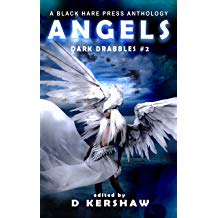
Talk about your support system online and IRL, especially your biggest cheerleaders.
My biggest supporter in my writing is my best friend and fellow writer, Wes Blalock. Our paths have paralleled each other’s in many ways. We both had careers in law enforcement before focusing on writing full time. Although we tend to write in different genres, we beta read much of each other’s manuscripts, offer editing advice, and encourage one another with our projects. We have even attended writing events together.

Online, I have joined several writing groups on Facebook and have connected with writers all over the world on Twitter. I find I get to know people a little better and interact more with them on Facebook, but the groups you join are important. Many of them are looking for people to sell books and writing services to rather than provide support and help. Choose carefully. Look for the groups that support one another, share publishing opportunities, and offer advice when you have serious questions about the process of writing or publishing.
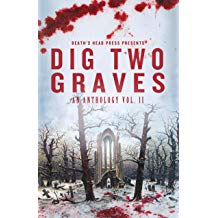
How does life, and career in law enforcement, influence your writing and vice versa?
While I was working in law enforcement, much of my writing was very dark. It focused on human cruelty and personal suffering. My ideas frequently came from real life incidents I had investigated, then I would twist the tale to give it a more suspenseful feel or add supernatural elements. Writing was cathartic for me then, it helped me process all the ugliness and violence I dealt with in my job. Now that I’m retired, I still love writing horror stories, but I have found myself moving more into the realms of dark fantasy and surrealism. I guess as my life has become less chaotic, so has my storytelling.
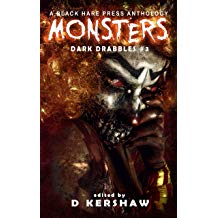
What do you love most about your creativity?
When I was working as a police officer, writing was one of the ways that I dealt with stress. Writing (and reading) short stories helped me deal with some of the harder emotional aspects of my job in a healthier way than drinking or trying to ignore them. Creating a story allowed me to decompress and to process my feelings.
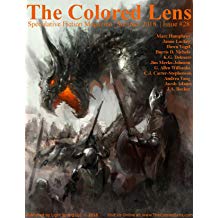
Although I am no longer dealing with the same level of stress in my life, writing is still a great outlet. I take pieces of dreams, ideas, and feelings and try to create something complete and wonderful out of them. I keep notebooks all around the house because I never know when a thought or somebody’s comment might trigger a new story idea. I absolutely love seeing a published final version of a story that started out as just a bunch of fragments of ideas and emotions. It is even more rewarding when I hear from someone who enjoyed reading something I created, but that is not the main reason I write. I think even if I never published another piece, I would continue to write just for the peace and enjoyment it brings me.
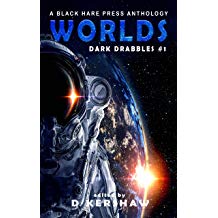
Connect with Wilbanks :
Website: https://gallenwilbanks.com/
Blog: http://deepdarkthoughts.com/home/
Amazon: https://www.amazon.com/G.-Allen-Wilbanks/e/B07GM6C9KD
Facebook page: https://www.facebook.com/gallenwilbanks/
Twitter: https://twitter.com/gallenwilbanks
